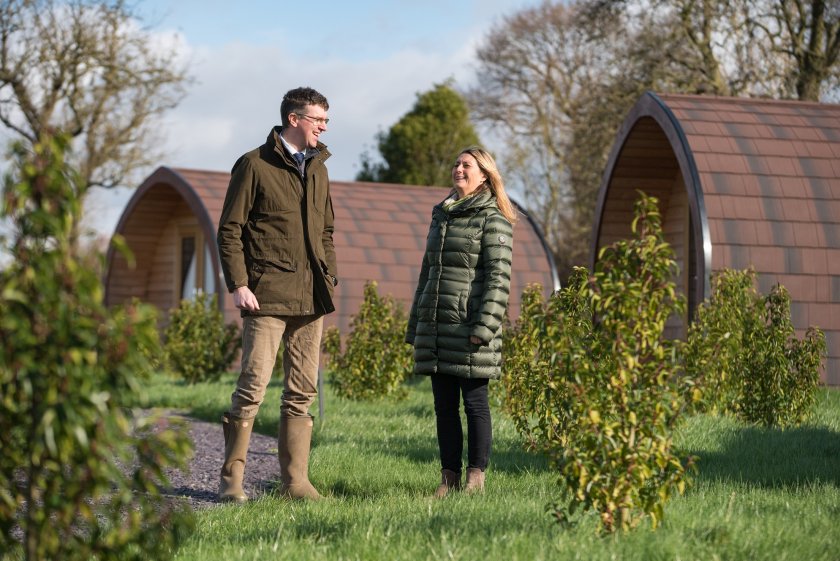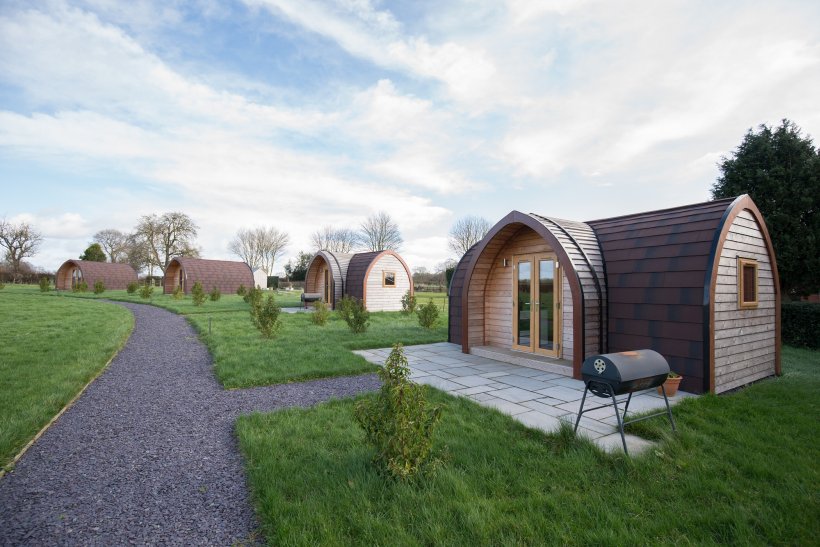
A Cheshire farm has capitalised on growing demand for UK staycations after diversifying into the high-end glamping market.
Bradley Hall, a 118-acre beef farm in Whitchurch, has built four luxury glamping pods under the banner of its new ‘Rural Escapes’ tourism offering.
The pods offer a high-end, self-contained glamping experience, complete with a private bathroom, kitchenette, heating and views of the Cheshire countryside.
When the farm reopened after lockdown on the 4 July 2020, bookings for the pods and Rural Escape’s five caravan pitches skyrocketed.
Anthony and Jane Mullock inherited the farm from Anthony’s parents, who managed a substantial herd of beef cattle.
Changing circumstances in recent years meant the couple wanted to diversify with new revenue streams – and with Jane’s background in hospitality, tourism was the obvious choice.
Mrs Mullock said: “The pods have really come into their own since the first lockdown was lifted – we’ve been extremely busy.
"A number of guests have commented that they wouldn’t consider staying in a hotel, guest house or campsite with shared facilities at present, never mind travel on a plane."

The farmers gained support from the Agricultural Mortgage Corporation (AMC), which arranged a five-figure funding package.
They have since borrowed further funds to purchase more land and expand the farm, with planning in place for a further two pods to meet demand into 2021.
Mrs Bullock added; "After borrowing the full amount we needed to set up the pods, we actually qualified for a Leader Grant, which covered a percentage of the cost.
"Due to the flexible nature of our variable-rate loan we were able to pay back a lump sum and lower our borrowing with no hassle which was brilliant.”
As a lender, AMC said it wanted to support farmers to develop alternative income streams that help strengthened their overall business.
Alick Jones, agriculture manager for the firm said: “What struck us about the Mullocks’ application was that it was incredibly well thought out.
"Their diversification plans were based on an established family business, and in an area where they already had some experience.
"We also liked the phased approach, building four pods to start with and two later."
